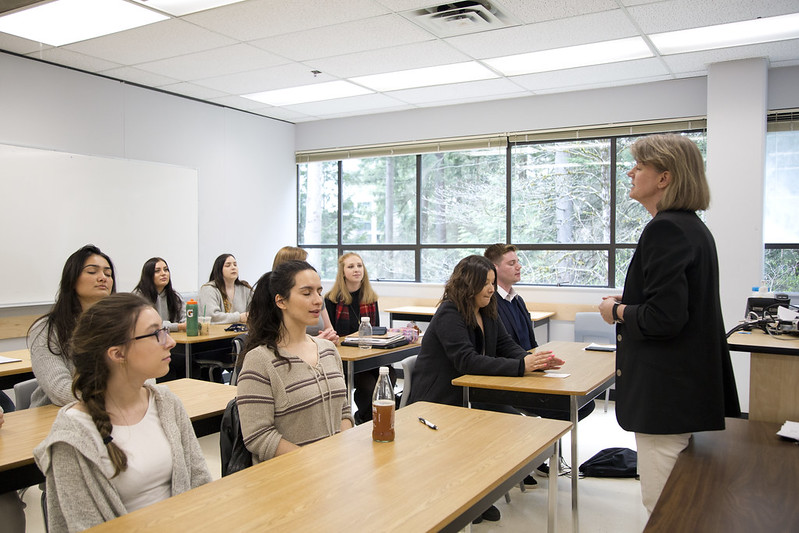
Lori’s Approach to Mindfulness
My curiosity about meditation and mindfulness came from my realization that I wanted to manage my anxiety more effectively. I learned that, while it can be passed down through families and become a default setting for the brain, meditation offered a way of not only easing anxiety’s grip but a way to slow down and see others and the world in a deeper, richer way. A CBC show exploring the neurological impacts of meditating with Matthieu Richard introduced me to the science of meditation and reinforced my interest and budding practice.
I settled on mindfulness meditation because of its practitioners’ interest in science, psychology (both traditional and Buddhist) and living life in the present moment. It asks us to slow down and let go of ruminations of the past and worries about the future. It asks us notice our thoughts, emotions and body sensations, and rather than judging and fixing. It asks us to be with those experiences with curiosity and kindness. And it gives us the gift of experiencing our lives with fewer knee jerk reactions and more thoughtful responses.
20 Minute Mindfulness Sessions
“20 Minute Mindfulness” introduces student, staff and faculty to mindfulness meditation in short, convenient sessions. It offers information, instruction and ongoing opportunities to practice mindfulness meditations that accommodate busy academic schedules and demands.
The perception that mindfulness practice takes a significant time commitment may be a barrier to students who might otherwise explore mindfulness. Lyzwinski et al. (2018) found that programs that are short, tailored to student needs, fact-based, inspirational, low cost, and free of fears of failing, can positively impact students’ demonstrated interest in, and an openness to, exploring ongoing mindfulness practices.
And as explored by Borsatto and Al-Salom (2019) with a mindfulness practice as little as five minutes long university students can experience benefits including greater enhancements in positive emotionality, fewer episodes of mind wandering and distractibility and improved resilience.
I have organized 20 Minutue Mindfulness sessions around “4 R’s and one silent R” and will cycle through these as appropriate for participants interests and needs:
Rest – Sense of calm that comes with a focus on the sensation of breath and focusing on the present moment experience
Refocus – Noticing thoughts, when they wander into non-productive thinking / past or future/ ruminating
Rethink – Catching ourselves in knee jerk reactions/ stories/ judgements/ biases
Resilience – a conscious break from our fear-based brain, an anchor to return to for a sense of control (breath, sound, return to the present moment
Referral – Strategies and support for trauma that may arise during meditation
Drop-in sessions will rotated through themes including:
- Just Breath – establishing the importance of breath as anchor
- Just Notice – the value of noticing vs doing/ acting on mindlessly
- Just Let it be – being with thoughts and emotions
- Just Let it go – noticing and addressing ruminating thoughts
- Just Don’t believe it – thoughts aren’t truths
- Just Take care – loving kindness practices
- Just REST–restful reflections for the weary and overwhelmed
Lori’s CapU Mindfulness Offers to date
- Introduction to Mindfulness – CapU Residence Advisors, Spring 2019
- Formal and informal mindfulness incorporated into Communication Theory, Intercultural Communication, Conflict Communication and Interpersonal Communication.
- 18 “20 Min Mindfulness sessions for faculty, students and staff ) Feb 18-June 4
- Upcoming “Cap Reunited Sessions” Summer 2021
- Faculty PD Session “Right Here. Right Now: A Role for Mindfulness in Anti-Oppression Pedagogy” May 6, 2021
Mindfulness Resources
Loving Kindness Meditation – Jack Kornfield
REST Meditation – Rashad Hughes
Introduction to the Vagus Nerve
Diana Winston’s RAINN Meditation for dealing with difficult emotions
https://dianawinston.com/meditations
Gratitude through the senses
Power pause
Michael Yellow Bird, PhD
Dean and Professor, Faculty of Social ‘Work, University of Manitoba. https://www.indigenousmindfulness.com
UCLA Mindful Awareness Research Center (MARC)
https://www.uclahealth.org/marc/default.cfm
Barbezat, D., Bush, M., Palmer, P. J., & Zajonc, A. (2014). Contemplative practices in higher education: Powerful methods to transform teaching and learning. San Francisco, CA: Jossey-Bass.
Contemplative pedagogy. (2019, October 03). Retrieved February 14, 2021, from https://ctl.columbia.edu/resources-and-technology/resources/contemplative-pedagogy/
